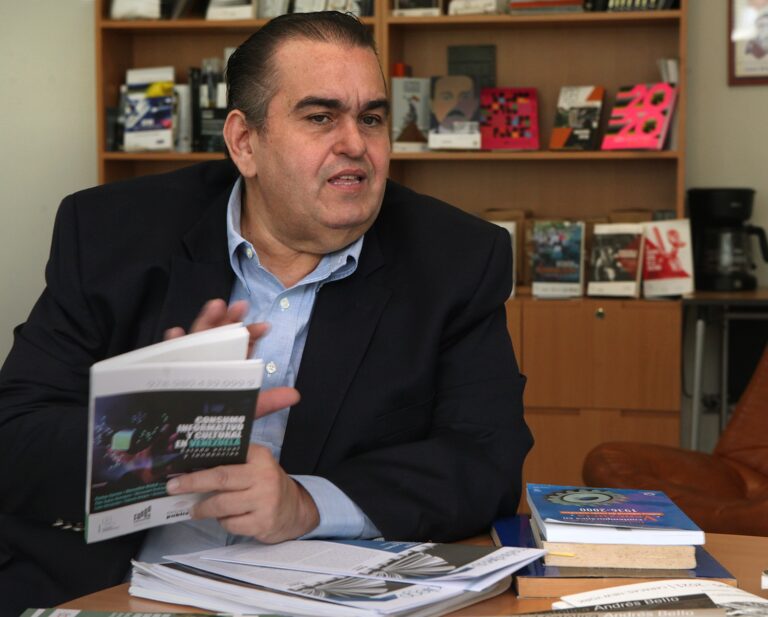Capitolio TV technicians Óscar Sánchez and Michael Acosta were about to install broadcasting equipment to cover news of a parliamentary session on healthcare, when they were detained by pro-government supporters.
On the morning of January 10, 2017, a group of government political party supporters and pro-government collective groups detained Óscar Sánchez and Michael Acosta, technicians with the Parliament’s digital TV channel Capitolio TV, when they were about to install broadcasting equipment to cover news of the parliamentary session scheduled for 2:30 pm at the José María Vargas medical school in San José de Cotiza, in Caracas.
This information was publicized by José Manuel Olivares, congressman to the national assembly for the Mesa de la Unidad Democrática, who, through his Twitter account @joseolivaresm, tweeted about the attack by official political party supporters on the José María Vargas school of medicine at the Universidad Central de Venezuela.
Via social media, congressman Olivares said that government party supporters, presumed to be armed, approached the technicians of the digital TV station who were on the roof of the José María Vargas school of medicine, and took away their cell phones, laptops and antenna.
Forty minutes after publishing a series of messages on the incident, the congressman reported that the workers had been released but their equipment continued to be in the hands of these official political party supporters.
Miguel Ángel Rodríguez, president of Capitolio TV, confirmed the almost two-hour long abduction of technicians Óscar Sánchez and Michael Acosta. By 2:30 pm, the time scheduled for the start of the parliamentary session, TBV representatives were still negotiating the return of the broadcasting equipment.
“Nothing shall prevent this national assembly from airing its broadcast of today’s session,” tweeted congressman Olivares, who also declared Nicolás Maduro Moros, president of the Bolivarian Republic of Venezuela, responsable for the damages caused by at least 60 persons at the school of medicine.
Based on information from José Igancio Guédez, secretary to the national assembly, the parliamentary session was scheduled for 2:30 pm on Tuesday January 10 at the Enrique Montbrun auditorium of the José María Vargas school of medicine to debate “the healthcare crisis and conditions of the nation’s hospitals”.
This incident represents a limitation on the media’s ability to cover news of public interest, linked to intimidation by official political party supporters against journalists and media workers and their equipment.
The right to freedom of expression and the right to information are consecrated in articles 57 and 58 of the Constitution of the Bolivarian Republic of Venezuela, which state that every person has a right to free plural and uncensored communication.
Number 5 of the OAS Declaration of Principles on Freedom of Expression sets forth that any prior censorship and direct and indirect pressure on any expression, information or opinion through the media must be forbidden by law and number 9 states that any aggression, assault, threat and intimidation against social communicators violate the fundamental rights of persons and severely hinder freedom of expression.


